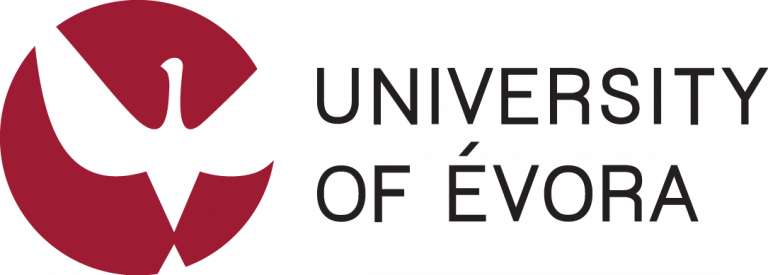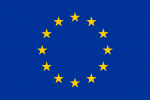The University of Évora becomes one of the five European demonstrators to transform the energy system – along with England, Denmark, Slovenia, and Spain // An international project launched to empower people in Europe to engage in the climate change debate and reduce their carbon footprint.
According to a new ambitious research project, the climate crisis can only be effectively addressed if citizens are empowered to play a much more active role in transforming the energy sector, participating in the ambitious EU goal of reducing carbon emissions by 55% within a decade. Launched in December 2021 as part of the European initiative “Green Deal,” this project promotes an explicitly bottom-up citizen-led approach, unlike the top-down political strategies and declarations, such as those seen in the recent government summit in Glasgow (COP26). The University of Évora in Portugal is one of the nine international partners in the project.
“It is the people who make a difference in climate change, so that the poorest in our society can benefit,” says the project coordinator, Dr. Ana Belén Cristóbal López from the Technical University of Madrid. “In fact, it is often the poorest in our society who stand to gain the most from reducing their carbon emissions and saving money on heating, lighting, and transportation.”
The project, called AURORA (“Achieving a new European Energy Awareness”), will work with 7,000 citizens in five locations in Denmark, England, Portugal, Slovenia, and Spain, to give them an active voice in how their energy is generated and used. These “citizen scientist” communities will finance local photovoltaic installations to produce a total of about 1 megawatt of renewable energy. To make the climate crisis less abstract for citizens, the project will first focus on raising awareness of the “carbon footprints” of our daily energy choices. Citizens will receive personalized recommendations on making more informed energy decisions to reduce their emissions.
The results will be shared with many other citizens across Europe with the aim of initiating a bottom-up movement for change. The project will also politically advocate for a more citizen-oriented approach to addressing the climate crisis, for example, by engaging with the United Nations Environmental Programme and European lawmakers gearing up for the United Nations Climate Change Conference in Egypt (COP27) in 2022.
The AURORA project is part of the renowned EU “Horizon 2020” program, initiated in December 2021. €4.6 million will be invested over the next 3.5 years.
Contextualization
Crucial factors
The European Union has set ambitious goals to mitigate and adapt to the climate crisis: reducing greenhouse gas emissions by 55% in less than a decade and making Europe the first climate-neutral continent by 2050. Three-quarters of these emissions are a direct result of how people produce and consume energy. The AURORA project will enable citizens to play an active role in transforming this sector, providing them with the tools to achieve these ambitions. The project will allow citizens to become both producers and consumers of energy (‘prosumers’). It will foster local energy communities, powered by state-of-the-art photovoltaic technology, aiming to transform the energy system overall to make it more transparent, fair, and sustainable.
The AURORA Project
The AURORA project is part of the renowned EU program “Horizon 2020”. It began in December 2021 and will receive a total of €4.6 million in funding over the next 3.5 years. Being an Innovation Action, the project has a particularly applied focus and implements its innovative solutions directly in practice: Around 7,000 citizens in five locations in Denmark, England, Portugal, Slovenia, and Spain will join forces to become “near-zero emission” citizens. As “citizen scientists,” these communities will also finance photovoltaic installations locally (through crowdfunding) to install a total of approximately 1 megawatt of renewable energy. A smartphone application – also to be developed as part of the project – will allow participants to monitor their own heating and cooling patterns, transportation, and electricity usage. In return, they will receive personalized suggestions on how they can reduce their energy consumption and cut costs. Approaches like these are intended to particularly engage younger generations and empower them to become agents of change beyond the project itself. Through workshops and practical activities, the project will encourage citizens to change their behaviors and attitudes towards energy.
The four continental European locations will be centered around university campuses as centers of social innovation; a fifth demonstrator will be created in one of England’s economically disadvantaged regions, where authorities declared a “Climate Emergency” in December 2018.
The AURORA project consortium consists of nine institutions from six countries. The effort is coordinated by the Technical University (Universidad Politécnica) of Madrid, led by Dr. Ana Belén Cristóbal López from the Institute of Solar Energy. During the project’s initiation in Madrid, Coordinator Dr. Cristóbal described the ambitious objectives as follows: “The AURORA project aims nothing less than to help local communities democratize the governance of their energy systems. Additionally, marginalized groups will have autonomy to make more informed and therefore more sustainable energy decisions.”
University of Évora – Contribution to the Project
The University of Évora in Portugal contributes to AURORA primarily by implementing a renewable energy community: “Our role will mainly be for the local community and the academic community, demonstrating that it is possible to be a citizen with reduced carbon emissions and have a replicating effect, which is how the University of Évora helps bring the European Green Deal to local life,” says Luís Fialho, researcher at the Renewable Energies Chair.
The AURORA project consortium
- Technical University of Madrid, Spain (Coordenador do Projeto)
- Aarhus University, Denmark
- Centre for Sustainable Energy, United Kingdom
- Forest of Dean District Council, United Kingdom
- Institute for Science & Innovation Communication, Germany
- KempleyGreen Consultants, United Kingdom
- Qualifying Photovoltaics, Spain
- University of Ljubljana, Slovenia
- University of Évora, Portugal
More information and contact:
In the coming weeks, the project will share more detailed information online at aurora-h2020.eu
The consortium can be contacted via email: info@aurora-h2020.eu
The Project Coordinator as well as representatives from the five demonstration sites are available for media inquiries/interviews.
The full press release is also available in the following languages:




